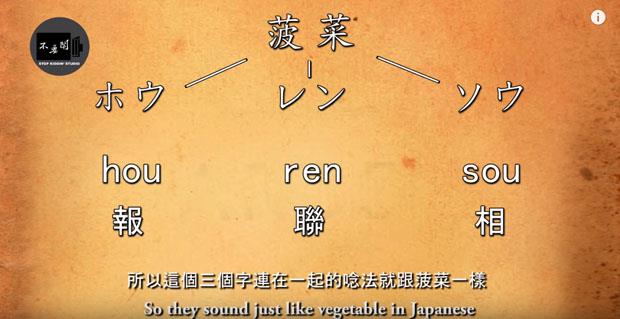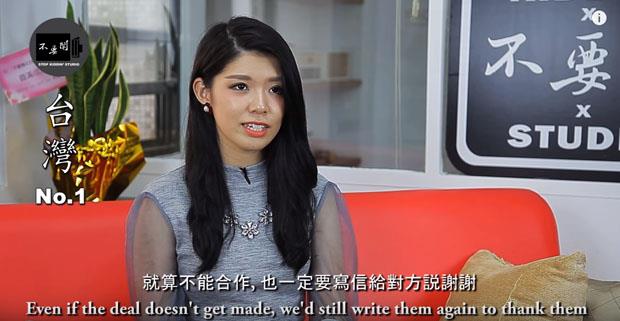1.與人有約,5-10分鐘前到
我們日本人很守時
We are always on time.
所以必須5-10分鐘前要到現場準備
We always arrive 5 or 10 minutes earlier to set up.
2.一定要「站著」交換名片
我們日本人初次見面的時候一定會交換名片
When we meet people for the first time, we have to exchange business cards.
而且一定要站著交換
And we have to stand.
3.送客時,等對方身影完全消失才能離開
我們日本人接待客人的時候
When we accommodate our guests.
因為最後要送客人回家
When they go home
所以送客人坐計程車之後,要等計程車離開視線才可以走
If they take a cab, we can’t leave until the cab has left the line of our sight.
★職場模範生:讓你的職場腦袋影響你的投資表現
職場做事好認真的你,有沒有想過如何將這樣的精神投射到你的口袋呢?
我們日本人跟任何地位比自己高的長輩乾杯的時候
When we make a toast with an elder.
杯子絕對不可以比他高
Our glasses can’t be higher than his.
5.菠菜理論,其實是...
我們日本人再工作上很重視「菠菜」
We value “hou ren sou” (Japanese) at work.
不是那個吃的菠菜喔!
“Hou ren sou” means reports, contact and communication.
菠菜的日文是:ホウレンソウ
In Japanese, vegetable sounds like “hou ren sou”.
剛好報告的報,日文唸ホウ;聯絡的聯,唸レン;相談的相,唸ソウ

這三個字連在一起的唸法就跟菠菜一樣
So they sound just like vegetable in Japanese.
所以我們日本人很重視工作上的報告、聯絡、相談,簡稱「菠菜」
That’s why we nickname our report, contact & communication as vegetable.
6.交換email後,不管有無合作都要回信給對方
我們日本人跟其他公司交換email的時候,
When we write emails to other companies for business cases,
就算不能合作,也一定要寫信給對方說謝謝
Even if the deal doesn’t get made, we’d still write them again to thank them.

千萬不要不回
Make sure you reply.
這樣非常非常非常沒禮貌
Because that would be extremely rude.
而且你也不知道以後會發生什麼事
You never know what will happen in the future.


 留言列表
留言列表


